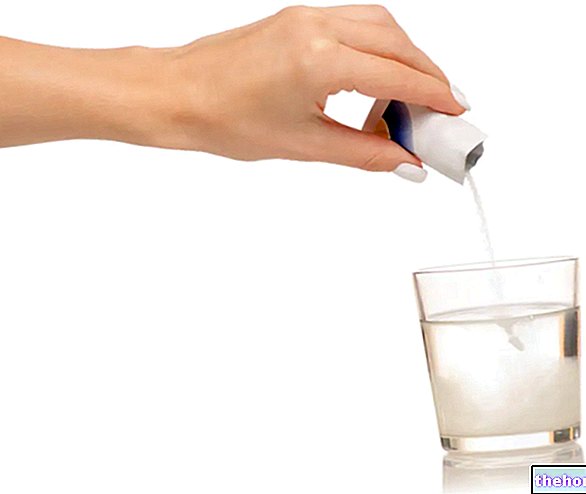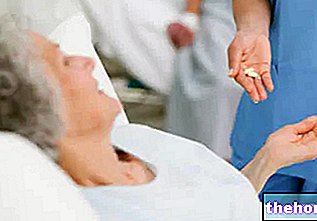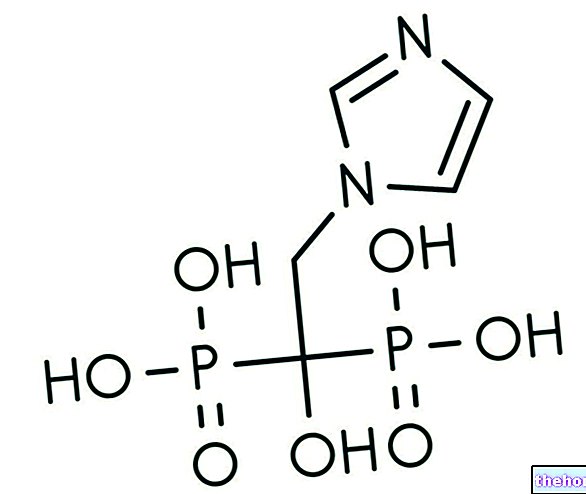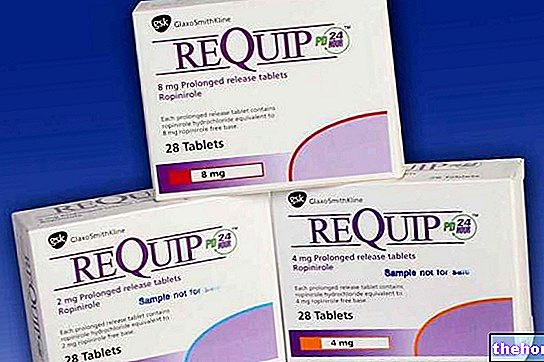Definition
As opposed to constipation, diarrhea frames a very common defecation disorder consisting in the urgent and rapid emission of stools, generally not very voluminous and purely watery or semi-liquid, repeated more than three times during the 24 hours. It must be emphasized that diarrhea cannot be defined a pathology in all respects; rather, it can be classified as a non-specific symptom that unites many diseases.
Causes
The intestine is a very sensitive organ to small alterations of the organism; therefore, being an intestinal disorder, diarrhea is caused by many and varied causes, ranging from psychological to physical. The most frequent causes are: diet, food allergies or intolerances, taking antibiotics / laxatives / NSAIDs, colon cancer, ulcerative colitis, diabetes, gastroenteritis, bacterial infections (salmonella, cholera, shighella, etc.), hyperthyroidism, malabsorption, irritable colon / Zollinger-Ellison, stress.
Symptoms
Signs associated with the onset of diarrhea may include: abdominal cramps and pains, fever, dark and watery stools, bloating, blood in the stool (especially in conjunction with hemorrhoids). The intensity of the symptoms clearly depends on the cause that originates the alteration of intestinal motility; Furthermore, diarrhea can cause a significant loss of water and salts, and in some cases it can cause dehydration.
Natural Cures
Diet and Nutrition
The information on Diarrhea - Diarrhea Treatment Drugs is not intended to replace the direct relationship between health professional and patient. Always consult your doctor and / or specialist before taking Diarrhea - Medicines to Treat Diarrhea.
Medicines
Many times, diarrhea tends to resolve itself without the need for drugs or treatments; before embarking on a therapeutic process for the treatment of the disorder, medical supervision is certainly necessary, given that, as we have analyzed, there are many and different factors at the basis of diarrhea. According to this, it is well understood how the treatment for diarrhea should differ precisely on the basis of the pathological condition that triggered it.
The most fearful complication is dehydration: in such situations, it is necessary to replenish the electrolytes and sugars lost through electrolyte solutions, to be taken intravenously or, when possible, with food.
The following are the classes of drugs most used in the therapy against diarrhea, and some examples of pharmacological specialties; it is up to the doctor to choose the most suitable active ingredient and dosage for the patient, based on the severity of the disease, the state of health of the patient and his response to treatment:
Intestinal motility inhibitors (antidiarrheals): to be used also in case of acute diarrhea, complicated or not. It is also recommended that intravenous electrolyte solutions be taken if diarrhea is accompanied by dehydration. It should be pointed out that taking antidiarrheals is not useful for the treatment of the pathology underlying diarrhea, but simply cures its symptoms.
- Lactobacillus Acidophilus (eg. Lacteol, Lacteol Forte): it is an antidiarrheal of microbial origin, consisting of inactivated microbes of Lactobacillus acidophilus. In particular, it is indicated for the treatment of diarrhea associated with dyspepsia or colitis, especially in the newborn. For the treatment of acute diarrhea, start therapy with 2 capsules of 5 billion Lactobacillus acidophilus, three times a day; continue with 2 capsules, twice a day.
- Bismuth salicylate: the dosage of this antidiarrheal (also used for the treatment of gastritis) varies from 87 to 262 mg, to be taken every 30-60 minutes, as needed. Generally, this drug is indicated for the treatment of diarrhea in children. Consult your doctor.
- Saccharomyces boulardii lyo: this antidiarrheal / probiotic is indicated for the treatment of acute diarrhea: indicatively, the dosage is 250 mg (1 capsule), twice a day.
- Loperamide (eg Imodium): start treatment for acute diarrhea with 4 mg of the drug orally, to be taken after the first bowel movement. Continue therapy with 2 mg of substance (do not exceed 16 mg in 24 hours). Generally, the disorder goes away in 48 hours. Do not take the drug for more than 5 consecutive days. For the treatment of chronic diarrhea, take 4 mg of the drug orally, followed by 2 mg of active following each bowel movement. Do not exceed 14 mg in 24 hours. The maintenance dose ranges from 4 to 8 mg. In general, the clear clinical improvement is observable after 10 days of therapy.
- Diphenoxilate: take 2 tablets or 10 ml of solution orally, 4 times a day. Maintenance therapy involves taking 2 tablets once a day. The dosage just described is indicated for the treatment of acute diarrhea in adults; for the child, the dose varies according to age (1.5-10 ml, 4 times a day). Consult your doctor.
- Codeine (eg. Hederix Plan, Codein F FN): in addition to the treatment of cough, codeine is sometimes used in therapy for the treatment of acute uncomplicated diarrhea in adults. The indicative dose is 30 mg, 3-4 times a day. The drug is not indicated for children.
Rehydration therapy: as we have pointed out several times, dehydration is a secondary effect closely related to diarrhea. To counteract this disturbance, it is necessary to replenish the electrolytes and fluids lost during bowel movements. Rehydration therapy can also be performed orally, as well as intravenously. It has been observed that the intestine is able to absorb water and sodium more simply in case of concomitant intake of glucose, potassium and rice starch. Consult your doctor.
Antispasmodics and anticholinergics: these are not the drugs used as the first line for the treatment of diarrhea. They are indicated to reduce symptoms accompanying the disorder, such as cramps and abdominal pain. Among these, the most suitable are:
- Scopolamine (eg Erion, Addofix): particularly suitable for giving symptomatic relief to gastrointestinal disorders (spasm of smooth muscles). Take orally 20 mg of active ingredient 4 times a day (halve the dose for children aged between 6 and 12 years). It is also possible to administer the drug intravenously, at the same dosage.
- Alverine citrate: oral administration of 60-120 mg 1-3 times a day is recommended. It is not recommended for children under 12 years of age.
- Atropine sulphate (eg Atropine Lux): useful in case of spasm of smooth muscles in the context of diarrhea. Generally, the drug is administered by subcutaneous or intramuscular injection at a dosage of 20 mcg per kilo of body weight (maximum dose 600 mcg).
Antiemetics: they are indicated in case of vomiting in the context of diarrhea. They are not recommended for children. They are not the first line treatment for diarrhea. Consult your doctor.
Broad spectrum antibiotics: indicated in case of diarrhea dependent on bacterial infections. However, antibiotics are generally not used to treat diarrhea associated with simple gastroenteritis, even in the case of presumed bacterial infection, as the condition tends to resolve on its own within a few days. Only in case of diarrhea in the context of proven bacterial co-infection, the doctor can prescribe antibiotic drugs.
In the event of taking drugs for more or less serious pathologies, one of the most frequent problems linked to the co-manifestation of diarrhea is the modulation of the absorption of the active ingredients: the dosage of the drug you are taking must be changed by the doctor, given that diarrhea can favor the expulsion of the active principle even before the organism can have absorbed it.
Other articles on "Diarrhea - Drugs to Treat Diarrhea"
- Drugs That Cause Diarrhea
- Diarrhea
- Diarrhea: causes and treatment
- Dysentery
- Traveler's Diarrhea
- Chronic diarrhea
- Chronic Diarrhea: Types, Symptoms and Complications
- Chronic diarrhea: Diagnosis, Treatment, Diet
- Diet and diarrhea
- Nutrition and diarrhea
- Diarrhea and Antibiotics
- Probotics and Diarrhea
- Herbal Teas Against Diarrhea




























